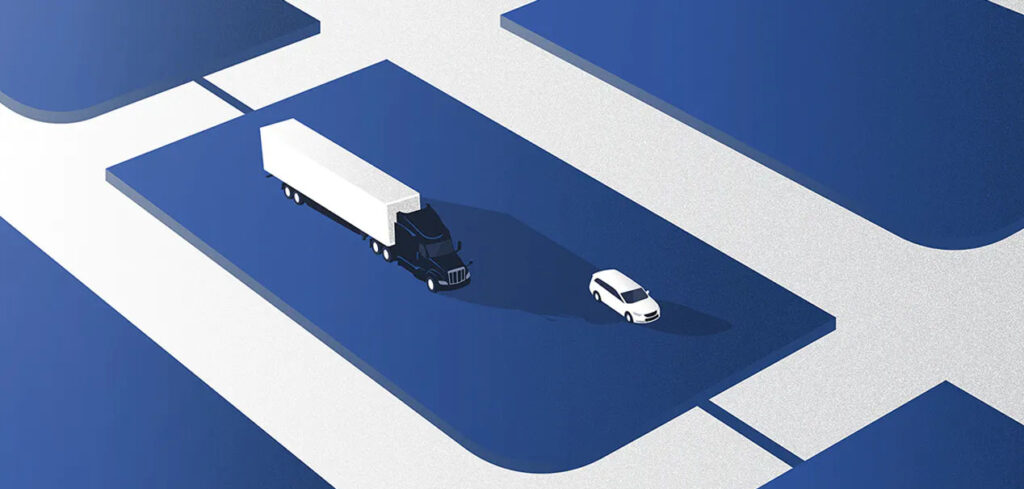Autonomous driving developer Aurora has released details of the Safety Case Framework it has developed, which it says can be applied to both autonomous trucks and passenger vehicles.
The company uses the safety case-based approach to evaluate when its vehicles are safe enough to operate on public roads, and to assess that they are not creating an unreasonable risk to motor vehicle safety.
According to Aurora, the framework assesses the entire development lifecycle of its vehicles, which it says allows it to accelerate the path to deployment. It notes it is currently the only AV company to publicly share its framework, a move it has made to encourage transparency within the industry.
Aurora VP of safety Nat Beuse explained, “Aurora’s Safety Case Framework captures different elements that are critical for evaluating the safe development, testing and operation of a self-driving vehicle on public roads. While a safety case-based approach is frequently used in a variety of other safety-centric industries — including aviation, nuclear, medical, automotive, and oil and gas exploration and extraction — it is not yet the norm in the self-driving industry. We think that this is something other self-driving companies should strongly consider using as they move toward commercialization.”
Beuse noted that the framework is not a static checklist of to-do items. “Our evidence-based approach is critical internally and externally. Within our company, our Safety Case Framework is how we continuously review evidence and evaluate the Aurora Driver’s performance and development against internal standards to ensure we are confident putting self-driving vehicles on the road both with and without a vehicle operator. Externally, it enables us to effectively share our approach and progress with partners, customers, regulators and the general public.
“This first version of the Aurora Safety Case Framework we are publishing today (Aug 17) includes the top four levels of our claims. Its further development will follow an iterative process, so we fully expect that it will evolve over time — in both the short and long run — as we learn more, experience more, and expand our testing operations to new environments and vehicle platforms. This framework is comprehensive, meaning it’s designed to cover testing with vehicle operators, as well as without. At the same time, it’s built to be adaptable, so we can tailor it to different scenarios and environments.”
Aurora states it developed the framework to work across multiple use cases from the outset, from heavy trucks on highways to suburban operations for passenger vehicles.
“While we tailor the framework for the specific vehicle platform and operating domain, this approach enables our team to work from one set of transparent guidelines, ensuring Aurora can develop quickly and operate safely,” stated Beuse.
“Instead of just focusing on safety for a final commercially deployed product, our Safety Case Framework is adaptable, with claims that support different aspects throughout the lifecycle of our self-driving vehicle development, from testing to deployment. This means that we will be able to adapt the safety case claims we have published today to different vehicle platforms, vehicles with an operator behind the wheel, and vehicles on testing tracks as well as public roads.”


